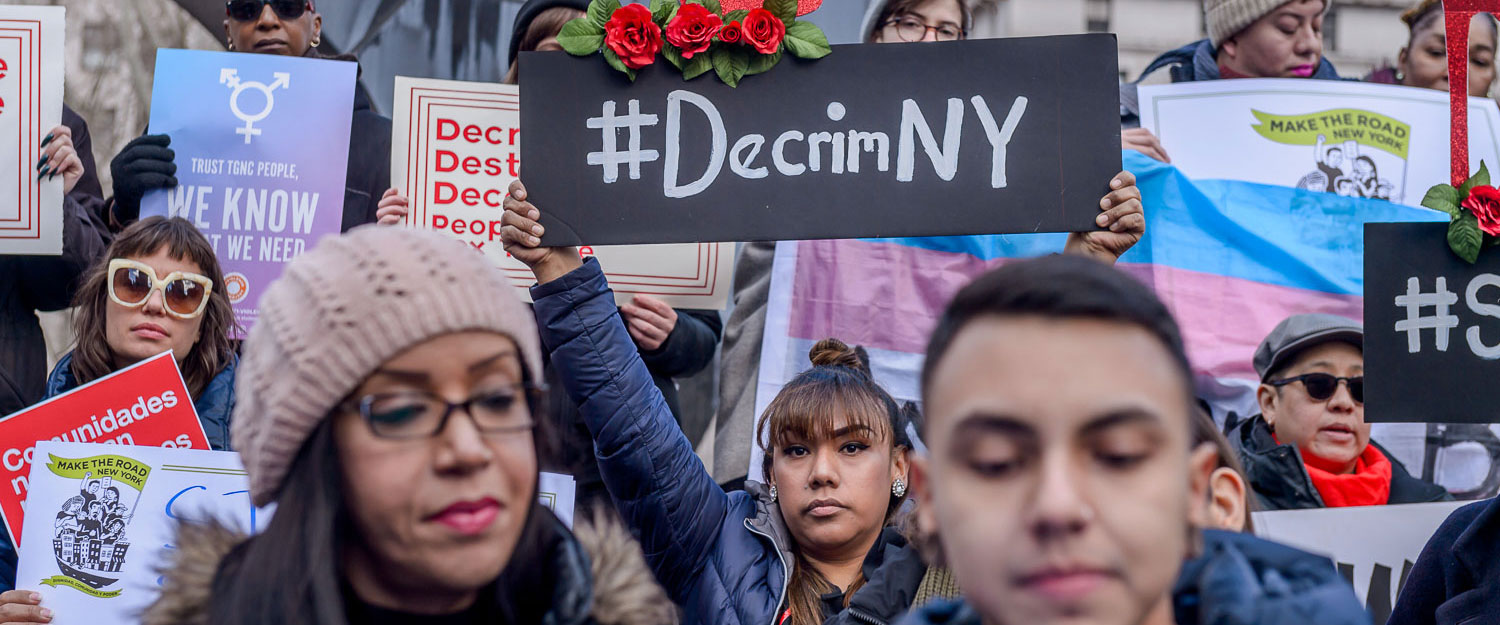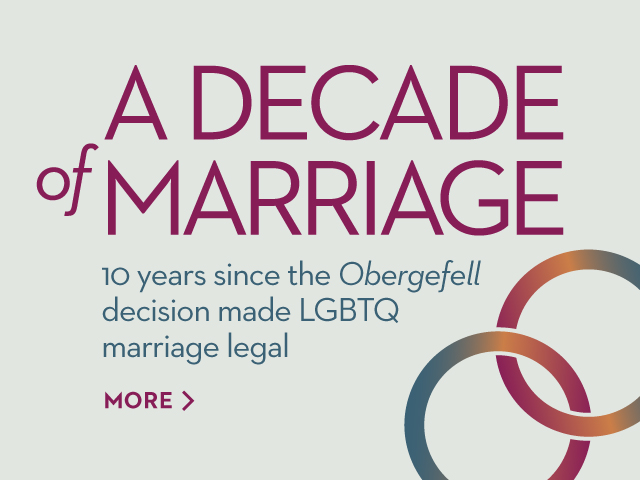LGBTQ people—especially low-income LGBTQ people of color—are disproportionately impacted by the criminal justice system. LGBTQ individuals experience significantly higher rates of joblessness and poverty than the general population, leading many to turn to underground economies like sex work or drug sales for income. Police bias, abuse and profiling of LGBTQ people—especially trans women of color—means more LGBTQ people are targeted by law enforcement. These factors, together with widespread discrimination and social marginalization, contribute to the significant overrepresentation of LGBTQ people in prisons and jails.

Criminalization & Incarceration
Photo Courtesy Erik McGregor Photography
Advocacy
Legislation & Policy
Sex Workers and Advocates Coalition
DC
NCLR joined the Sex Workers Advocates Coalition in 2018 to support the campaign to decriminalize sex work in the District of Columbia. NCLR co-leads the efforts to build support in the LGBTQ community for sex work decriminalization.
Cases & Advocacy
Doe v. Bondi
NCLR, GLAD Law, Brown Goldstein & Levy LLP and Rosen Bien Galvan & Grunfeld LLP represent three transgender women in a case challenging a federal Bureau of Prisons (BOP) policy directed by President Trump which would override Prison Rape Elimination Act protections for vulnerable populations, including transgender women, and would terminate all medical care for gender dysphoria for incarcerated individuals.
Resources
Press Release
U.S. Fourth Circuit Court of Appeals Affirms Transgender People Are Protected Under the Americans with Disabilities Act
August 16, 2022. The U.S. Court of Appeals for the Fourth Circuit today affirmed that transgender people who experience gender dysphoria are protected under the Americans with Disabilities Act and the Rehabilitation Act. The ruling reverses a Virginia district court’s dismissal of claims brought by Kesha Williams, a transgender woman who was incarcerated in a men’s detention facility, denied access to medical treatment for her gender dysphoria, and faced persistent harassment by other inmates and prison deputies.
Publications
Supporting LGBTQI Youth in the Prison Abolition Movement
This report synthesizes findings from three sets of sources with recommendations and guidance to support this population of young people. Given the disproportionately negative outcomes experienced by LGBTQI youth in the prison system, this report makes the case for approaching the academic literature with an understanding of intersectionality, in order to support LGBTQI young people involved in a broad range of social movements. This report also serves to highlight ways in which these young people are well poised to become powerful change agents in the movement to end the failed youth prison model.










